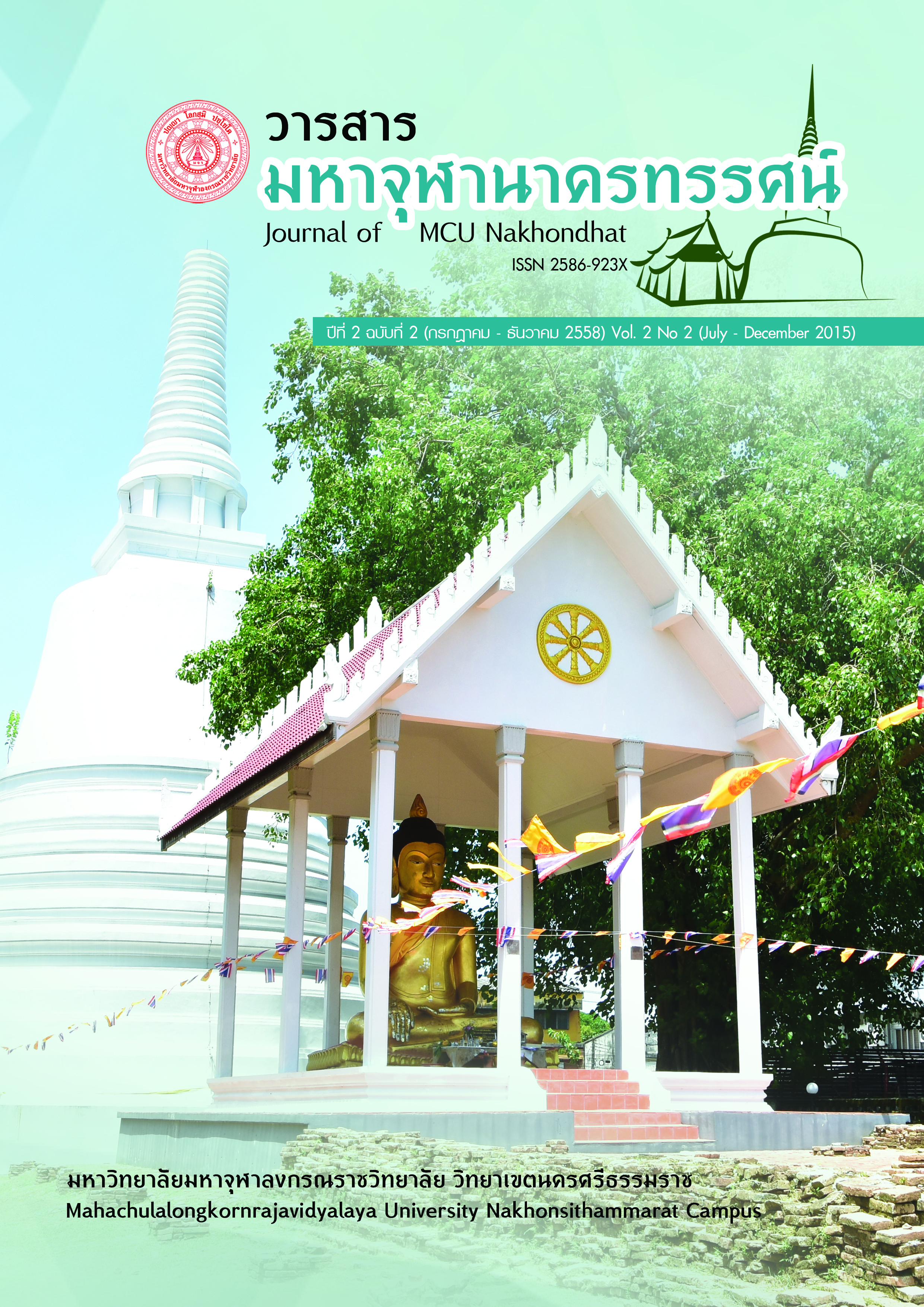A COMPARATIVE OF THE GOVERNMENT VIEW IN TAO THE CHING SCRIPTURE AND THE TIPITAKA SCRIPTURE.
Main Article Content
Abstract
This thesis has a purpose to compare the government which appeared in Tao Teh Ching scripture and Tipitaka Scripture by setting up 3 objectives as; 1. To study the government viewpoint in Tao Teh Ching Scripture. 2. To study the government viewpoint in Tipitaka Scripture. And 3. To compare the government viewpoint between Tao Teh Ching Scripture and Tipitaka Scripture. This is qualitative research which studied on collective data to analyze in terms of documents which concerned with virtual principle for ruling of Tao veligion and Buddism for wider point of view and more detail as following.
The research results found that.
- 1. The government viewpoint in Tao Teh Ching Scripture makes a focus in terms of evolution, the caste division and the benefits. The states like a big family means the states virtually governs people and make a change by beginning from itself. The governor has to be in a moral and not to be in ill-treatment. Being in a moral is better than laws because the moral grows up in humanities; there is no need in the alphabets.
- 2. The government viewpoint in Tipitaka, according to the Lord Buddha, he makes a focus on the government in terms of the quantity, especially in morality and the central organization. It means that the state plays a big role and the governor should be in a moral. The morality is very important and fulfills the humanities in the right behavior and there are finally no need laws.
- 3. The analytical result in comparison between Tao and Buddhism both agreed with terms of evolution of nature and society. The state was organized because of social needs and welfares. There are 2 viewpoints in government as law and morality to protect the people from a bad behavior or a mistake not for punishment. Lao Tzu and Lord Buddha both pay attention in a morality more than in a law.
In conclusion, Lao Tzu is not only an official in the Royal Scribe at Loyan City but also a philosopher, his views on politics and government can be expressed independently throughout the poem. In the same way, the Lord Buddha is the prophet; his views are focused throughout religion by teachings. However, Lao Tzu and Lord Buddha both have the same goal for seeing the people to get good welfares but there is a little difference in Tao concerning to a mundane happiness but in Buddhism concerning to the supramundane happiness.
Article Details
References
นายชลธี ยังตรง. (2533). ความคิดทางการเมืองของพุทธทาสภิกขุ. กรุงเทพมหานคร: โรงพิมพ์จุฬาลงกรณมหาวิทยาลัย.
มหาจุฬาลงกรณราชวิทยาลัย. (2539). พระไตรปิฎกภาษาไทย ฉบับมหาจุฬาลงกรณราชวิทยาลัย. กรุงเทพมหานคร: โรงพิมพ์มหาจุฬาลงกรณราชวิทยาลัย.


